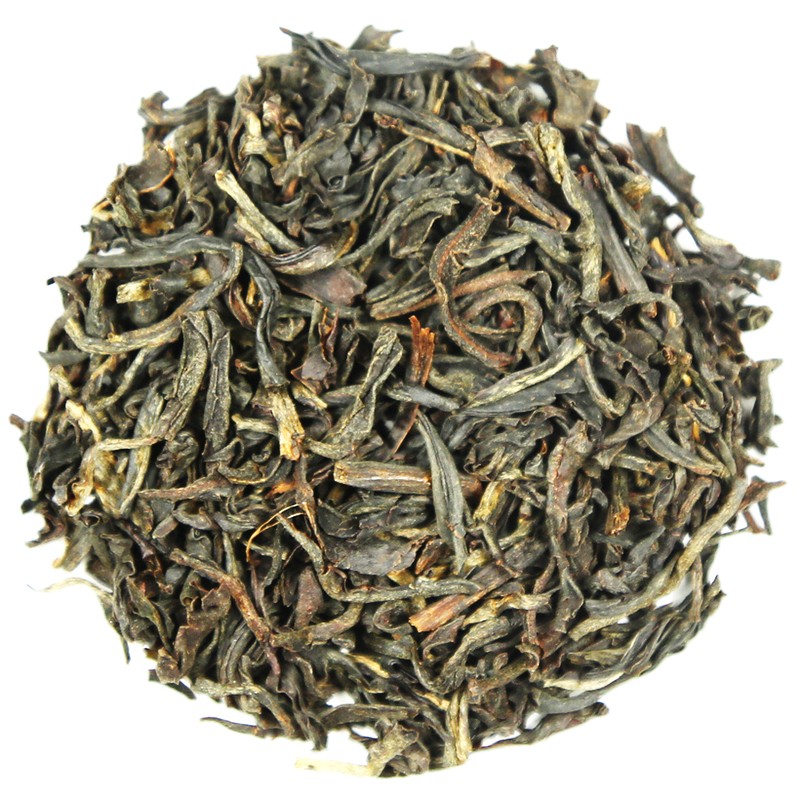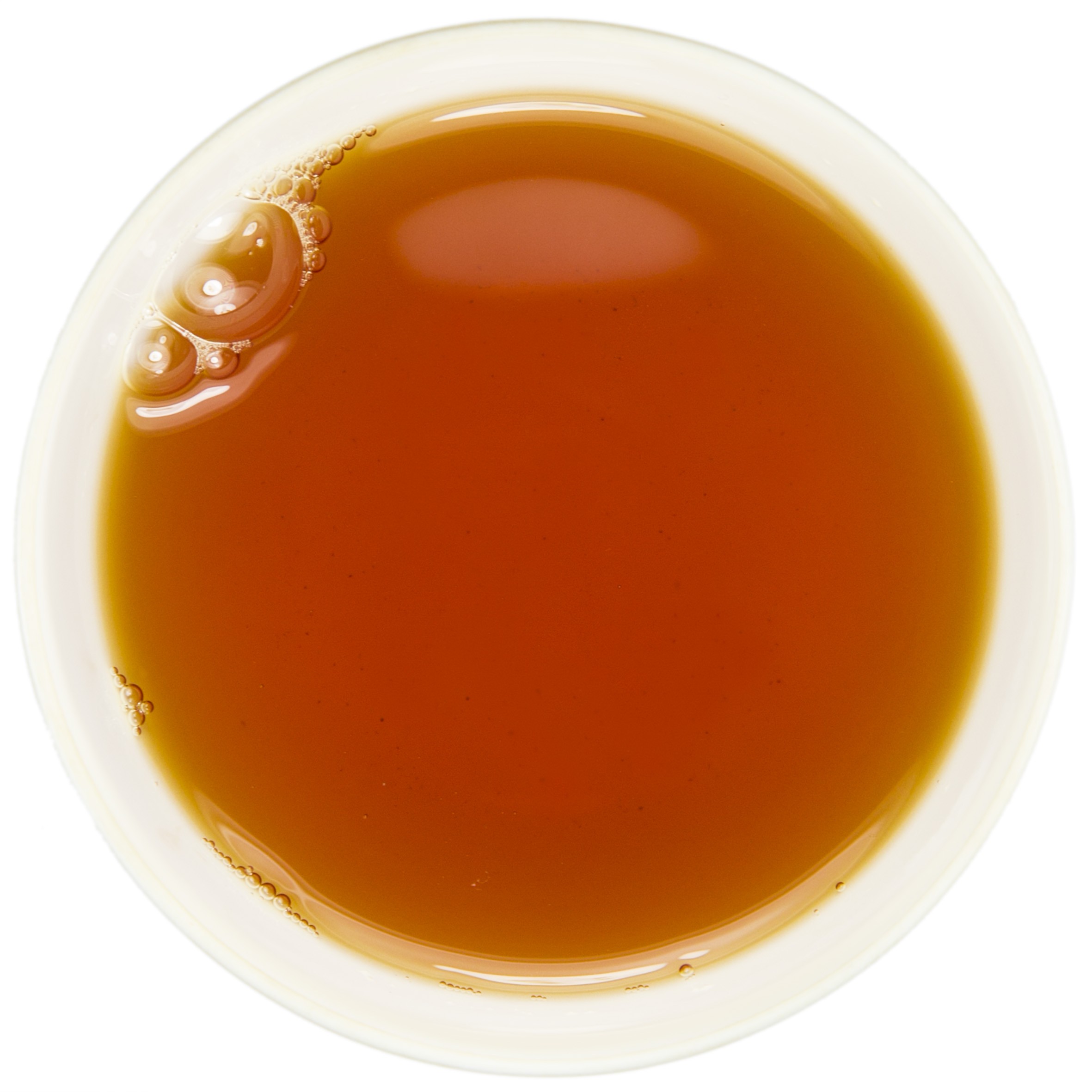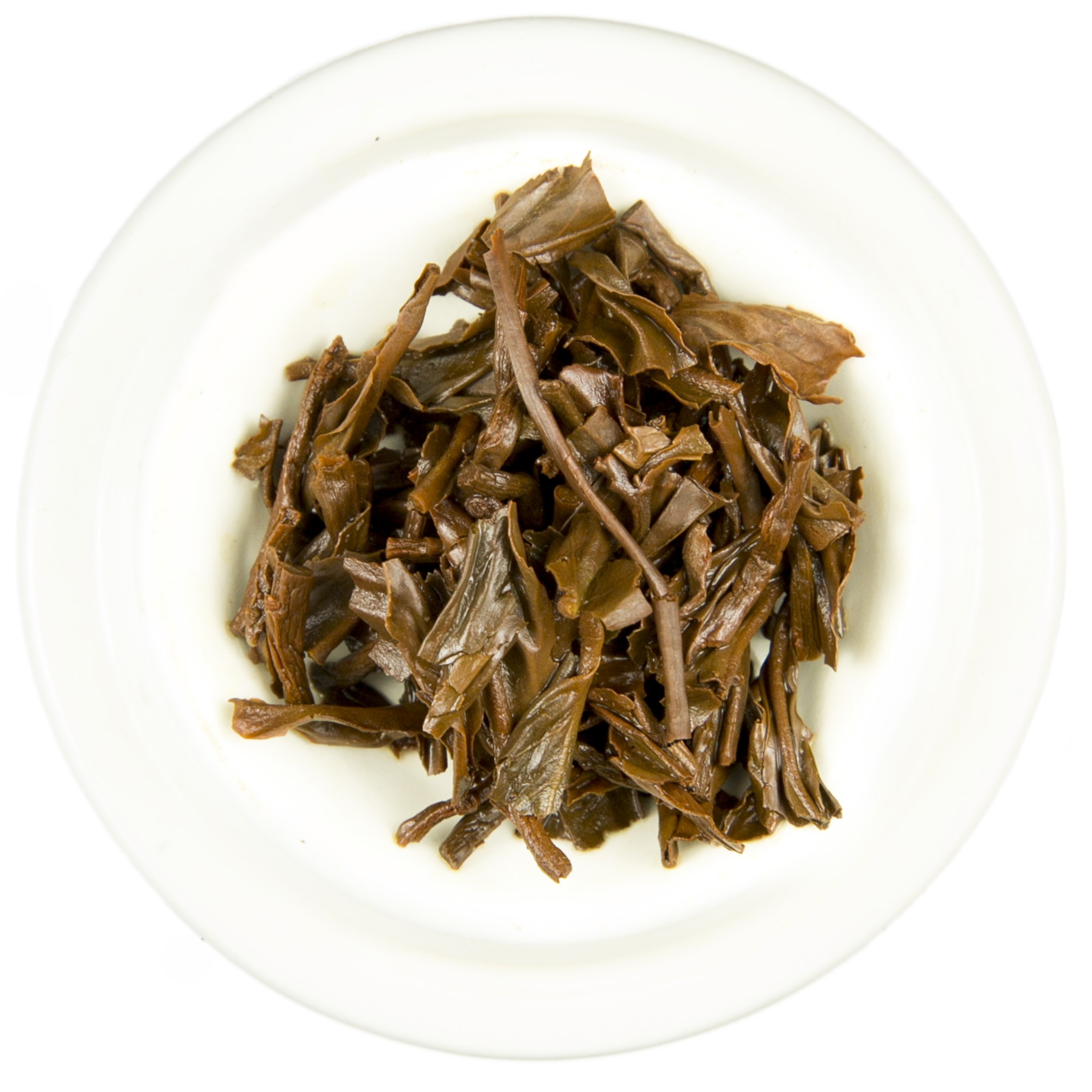Black Tea Brewing Guide

1 Teaspoon
Add 1 teaspoon per person and one for the pot.

95⁰c - 100⁰c
Boil using fresh water, at a temperature of 95⁰ - 100⁰c.

3 - 5 Mins
Steep for 3-5 minutes, depending on personal preference
About Product
-
Product Description
Assam Tea Greenwood Estate is an Indian Black Tea from the Dibrugarh district. The area lies south of the mighty River Brahmaputra, the local climatic conditions and fertile soil contributing significantly to its outstanding quality and flavour.
This particular variety is a Tippy Golden Flowery Orange Pekoe (TGFOP), one that is well-manufactured and boasts delectably malty notes with every sip.
In addition to its exceptional taste, Assam Tea Greenwood Estate offers Black Tea benefits. This is according to the latest scientific research, which indicates it can promote weight loss, improve heart health and reduce diabetes risks.
Furthermore, there are suggestions it can aid digestion, enhance brain function and support the immune system.
Assam Tea Facts
- Assam Tea is one of the most popular types of Indian Tea?
- Did you know that Assam Tea production started in 1823?
- A Scotsman, Robert Bruce, who essentially started the industry?
What does Tippy Golden Flowery Orange Pekoe mean? The term “FOP”, in particular, denotes Tea made from the top bud and the first two leaves of each new shoot.
These varieties contain young, tender leaves with a balanced amount of ‘tip’ and ‘bud’. “TG”, meanwhile, means it has an especially high content of golden tips, which is often favoured by connoisseurs.
About Assam Greenwood Estate Tea TGFOP
Type of Tea: Assam Tea.
Origin: Greenwood Tea Estate, Dibrugarh District, Assam, India.
Brewing Instructions: Brew using freshly boiled water. Infuse for 3 to 5 minutes.
How to Serve: Milk, sugar, honey or lemon – the choice is yours. Alternatively, serve black.
Tasting Notes: Assam Tea Greenwood Estate is a smooth, malty infusion from start to finish.
Colour in Cup: Coppery-orange liquor, light in tone.
Health Benefits: If you’re choosing this beverage for health reasons, you’ve decided exceptionally well. Assam Tea Greenwood Estate, like all Black Tea types, contains an abundance of vitamins, minerals and other antioxidants.
Is Assam Tea Greenwood Estate TGFOP Good for You
Due to its processing, the most common antioxidants are theaflavin and thearubigins, both of which can combat free radicals in the body. This, in turn, slows down the process of oxidation, ultimately reducing the risk of developing several chronic conditions.
But perhaps most notably, it can enhance brain function. A study conducted at the University of Singapore and published in the American Journal of Clinical Nutrition has the answers. The research project saw some 2,500 participants aged 55 or over undergo cognitive measuring.
Two years later, scientists remeasured those involved. The results established that participants who drank two or three cups of Black Tea a day had a 55% lower chance of suffering from cognitive decline. Those who drank six to ten cups a day, meanwhile, had up to a 63% lower chance.
-
Delivery Information
We offer reliable delivery services through Royal Mail to ensure that your orders reach you on time.
Here are the main points you should be aware of:
- Standard UK Delivery: £3.95 excluding delivery charge.
- Delivery Times: Orders are processed and dispatched within 2-5 working days but they may take longer during busy times. It is worth noting that all our orders are packed by hand in order to maintain the quality.
- Free Delivery: We are delighted to provide free shipping for UK orders over £35*. Moreover, customers from Europe can enjoy free shipping for any purchase above €75*. Furthermore, we offer free delivery in the USA for all purchases exceeding $125*. Please note terms and conditions may apply.
- Tracking: When your package is sent you will receive a tracking number via email so as to keep tabs of its progress.
International Shipping
We do ship worldwide meaning our products can be accessed by anyone around the world.
Here are some important details:
- Delivery Times: International deliveries vary based on destination, generally taking between 7-14 working days.
- Shipping Costs: International shipping costs are calculated at checkout based on your location and weight of your order. View full delivery charges for your location.
- Customs and Import Duties: Remember customs or import duties may exist depending on regulations in your country; these charges are borne by the customer.
Returns Policy
Your satisfaction is our top priority, however if for any reasons you’re not completely happy with your purchase, simply follow our returns procedure:
- Eligibility: Items returned within 30 days of receipt must remain unopened and in their original condition.
- Process: In order to return an item contact our customer service department using your unique order number after which detailed instructions will be given concerning returning them back to us securely.
- Refunds: Our aim is to refund you within 5-7 working days upon successful reception of returned goods. The refund amount will be credited to your original payment method.
For any other Enquiries or help please contact our Customer Support Team always at your service.
-
Product Reviews

 Loose Leaf Tea
Loose Leaf Tea Pyramids
Pyramids Tea Bags
Tea Bags Africa
Africa Assam
Assam Ceylon
Ceylon Chinese
Chinese Darjeeling
Darjeeling European
European Indian
Indian Japan
Japan Nepal
Nepal South East Asia
South East Asia Ayurveda Tea
Ayurveda Tea Black Tea
Black Tea Chai Tea
Chai Tea Flowering Tea
Flowering Tea Fruit Tisanes
Fruit Tisanes Green Tea
Green Tea Herbal Tea
Herbal Tea Matcha Tea
Matcha Tea Oolong Tea
Oolong Tea Organic Tea
Organic Tea Pu erh Tea
Pu erh Tea Rooibos Tea
Rooibos Tea White Tea
White Tea Asian Coffee
Asian Coffee Caribbean Coffee
Caribbean Coffee Central American Coffee
Central American Coffee South American Coffee
South American Coffee Coffee Blends
Coffee Blends Decaffeinated Coffee
Decaffeinated Coffee Espresso Coffee
Espresso Coffee Ethically Sourced Coffee
Ethically Sourced Coffee Flavoured Coffee
Flavoured Coffee Organic Coffee
Organic Coffee Single Origin Coffee
Single Origin Coffee Chocolate 1
Chocolate 1 Chocolate 2
Chocolate 2 Chocolate 3
Chocolate 3 Chocolate 4
Chocolate 4 Chocolate 5
Chocolate 5 Chocolate 6
Chocolate 6 Chocolate 7
Chocolate 7 Chocolate 8
Chocolate 8 Chocolate 9
Chocolate 9 Loose Tea Filters
Loose Tea Filters Tea Accessories
Tea Accessories Tea Bricks
Tea Bricks Tea Caddies
Tea Caddies Tea Caddy Spoons
Tea Caddy Spoons Tea Gift Ideas
Tea Gift Ideas Tea Infusers
Tea Infusers Tea Strainers
Tea Strainers




